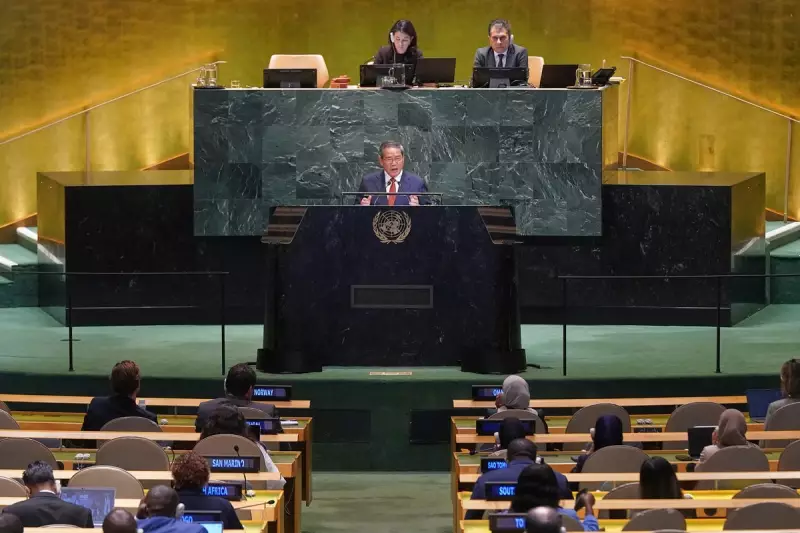
In a significant diplomatic development that could reshape global geopolitics, Chinese President Xi Jinping has made a surprising overture toward the United States, marking a potential turning point in the increasingly strained relationship between the world's two largest economies.
A Strategic Shift in Beijing's Approach
The Chinese leadership, under President Xi's direction, has initiated what appears to be a carefully calibrated effort to improve communications with Washington. This unexpected move comes after months of escalating tensions across multiple fronts, from trade disputes to technological competition and regional security concerns.
Analysts observing the situation note that this diplomatic initiative represents a notable departure from Beijing's recent posture. "We're witnessing what could be the beginning of a strategic recalibration," explains Dr. Evelyn Thompson, a senior fellow at the Royal Institute of International Affairs. "After an extended period of hardening positions, both powers seem to be testing the waters for potential dialogue."
Behind the Diplomatic Manoeuvring
Several factors may be driving this unexpected diplomatic outreach:
- Growing economic pressures affecting both nations
- Shared global challenges requiring coordinated responses
- Regional stability concerns in Asia-Pacific hotspots
- International business community anxiety over continued friction
The timing of this initiative is particularly noteworthy, coming amid ongoing debates about the future of global supply chains and international cooperation frameworks.
What This Means for International Relations
While initial reactions from diplomatic circles remain cautious, there's emerging consensus that any meaningful improvement in Sino-American relations would have far-reaching implications:
- Economic Stability: Reduced tensions could calm volatile markets and restore business confidence
- Global Governance: Potential for cooperation on climate change and pandemic preparedness
- Regional Security: Possible de-escalation in flashpoints like the South China Sea and Taiwan Strait
However, experts caution against premature optimism. "The structural competition between China and the US remains," notes Professor Michael Chen of the London School of Economics. "What we're seeing might be tactical adjustment rather than strategic transformation."
The Road Ahead
As diplomatic channels show signs of renewed activity, the international community will be closely monitoring several key indicators:
- High-level meetings between officials from both nations
- Concrete policy changes rather than rhetorical shifts
- Reactions from allied nations and regional partners
- Impact on multilateral institutions and agreements
The success of this diplomatic initiative will ultimately depend on whether both powers can find common ground while managing their fundamental differences—a challenge that has defined great power relations throughout history.






